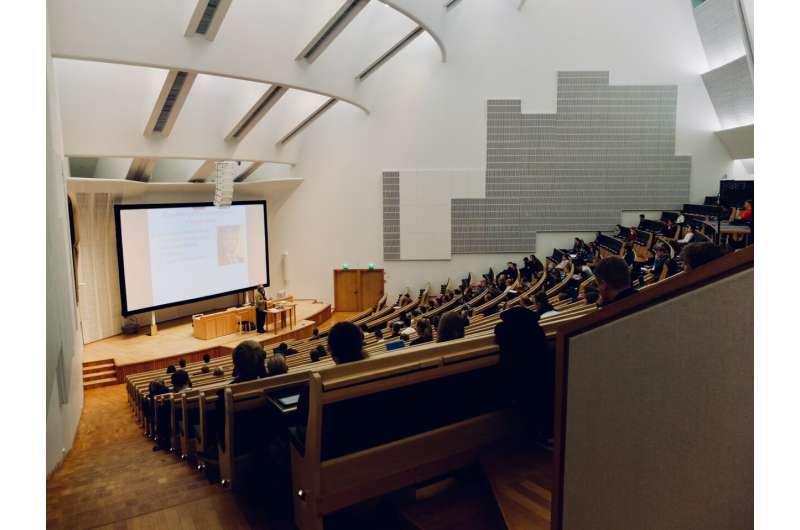This article has been reviewed according to Science X's editorial process and policies. Editors have highlighted the following attributes while ensuring the content's credibility:
fact-checked
peer-reviewed publication
trusted source
proofread
Transforming higher education for minority students: Minor adjustments, major impacts

A new study from Hebrew University led by Ph.D. student Kinneret Endevelt, under the supervision of Dr. Roni Porat from the Department of Political Science and Department of International Relations and Prof. Eran Halperin from the Department of Psychology, unveils a novel approach to bridging the achievement gap for minority students in higher education.
The research emphasizes the critical need to address minority students' lingering sense of belonging uncertainty and introduces a psychological intervention aimed at fostering inclusivity and success within the university environment.
The study introduces a targeted intervention to enhance minority students' sense of belonging by modifying the institutional learning space. Tested in two large-scale field experiments in Israel with more than 20,000 Jewish and Palestinian students during the COVID-19 pandemic, the intervention involved displaying the lecturer's name in Hebrew, English, and Arabic on Zoom.
The research paper, titled "Zoom out: An intervention on the virtual learning environment improves minority students' grades in two field experiments in Israel," is published in the Proceedings of the National Academy of Sciences.
Results showed a significant positive impact on Palestinian students, including increased belonging, engagement, participation, and improved academic performance. Average grades rose by 10 points in the first experiment and by 4 points in the second. The research underscores that small, strategic institutional changes can significantly benefit minority populations, highlighting the importance of promoting an inclusive learning environment.
"This study underscores the power of seemingly minor modifications in educational settings to make substantial impacts on minority students' academic experiences and outcomes," said Dr. Porat. "By acknowledging and integrating minority students' cultural and linguistic backgrounds, we can create a more inclusive and supportive environment that promotes equity in education."
Beyond the virtual classroom, this approach can be extended to physical spaces by incorporating minority languages and cultural elements into faculty offices, cafeteria menus, and student lounges. Such practices can reinforce the sense of belonging and inclusion for minority students, creating a more supportive and equitable educational environment.
The implications of this study are extensive. By adopting and consistently reinforcing inclusive practices, educational institutions can reduce disparities and promote social mobility. This intervention also offers insights applicable to other contexts, such as workplaces and public spaces, suggesting that subtle changes in everyday environments can foster a more equitable and welcoming society.
The study reveals that small, meticulously crafted changes to the institutional environment can significantly impact minority students' academic achievements and sense of belonging. By embracing these findings, educational institutions can take meaningful steps toward creating a more inclusive and supportive environment for all students.
More information: Kinneret Endevelt et al, Zoom out: An intervention on the virtual learning environment improves minority students' grades in two field experiments in Israel, Proceedings of the National Academy of Sciences (2024). DOI: 10.1073/pnas.2313496121
Journal information: Proceedings of the National Academy of Sciences
Provided by Hebrew University of Jerusalem



















